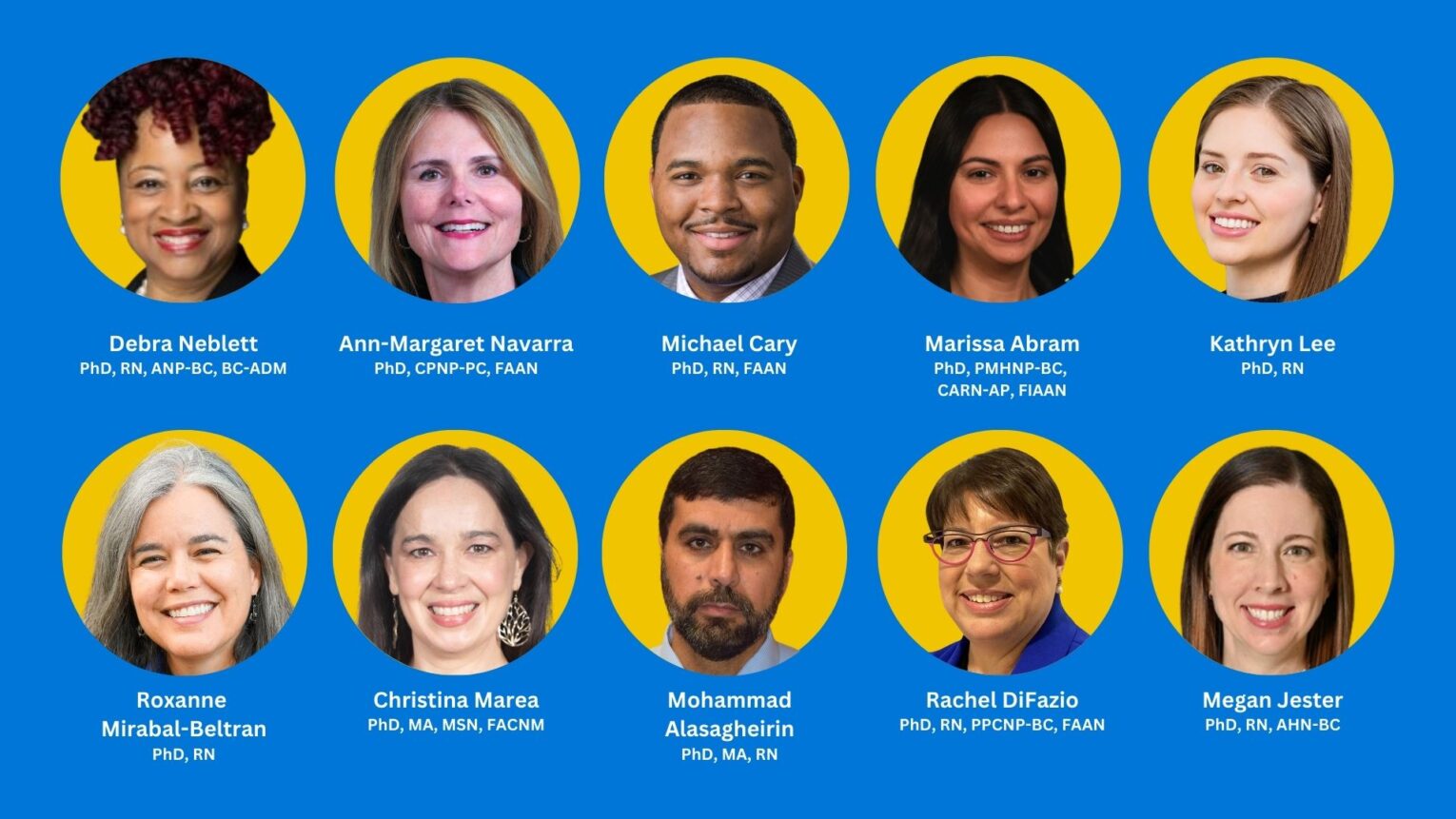First Ten Fellows Named for Innovative Social Determinants of Health (SDOH) Program
Latest | Home | About | Our People | CLAFH | Events | News | Stories | IPS Affiliates | Training
First Ten Fellows Named for Innovative Social Determinants of Health (SDOH) Program
Their work could help cure America’s ailing health system
Eliminating health and health care inequities is the most promising solution to fix our broken health system. Now ten widely-respected nurse scientists — the first Fellows of the Nursing Science Incubator for Social Determinants of Health Solutions (N-SISS) — are about begin their cutting-edge research to make breakthroughs and advance optimal health for everyone.
N-SISS is a program of the Institute for Policy Solutions (IPS) at Johns Hopkins School of Nursing (JHSON) with support from the National Institute of Nursing Research (NINR). The innovative program is co-directed by Drs Vincent Guilamo-Ramos and Jason Farley.
“Every American feels deep angst about our ailing health system — and most Americans want a comprehensive cure, a sustainable solution; eliminating health and health care inequities is that sustainable solution,” said Guilamo-Ramos, who is IPS Executive Director and the Leona B. Carpenter Chair in Health Equity and Social Determinants of Health at JHSON.
“As we welcome our first ten N-SISS Fellows, we are excited by the possibilities of their research to supercharge and expedite the breakthroughs needed to positively impact everyone’s health,” said Farley, who is Leadership and Innovation Endowed Chair, Associate Dean, Community Programs & Initiatives, Director of the Center for Infectious Disease and Nursing Innovation, and Co-Director Clinical Core, Johns Hopkins Center for AIDS Research.
The first ten Fellows are:
- Assistant Professor Marissa Abram, PhD, PMHNP-BC, CARN-AP, FIAAN, Duke University School of Nursing, whose research will focus on mitigating the related consequences of substance use disorder (SUD) among people living with HIV, their families, and communities.
- Associate Professor Mohammad Alasagheirin, PhD, MA, RN, University of Wisconsin Eau Claire College of Nursing, whose research will focus on health promotion and disease prevention among refugees and new immigrants.
- Associate Professor Michael Cary, PhD, RN, FAAN, Duke University School of Nursing, whose research will focus on strengthening the utilization of SDOH in AI development to inform clinical decisions for older adults with complex medical profiles.
- Nurse scientist Rachel DiFazio, PhD, RN, PPCNP-BC, FAAN, Boston Children’s Hospital, whose research will focus on improving clinical outcomes among children with cerebral palsy who experience harmful SDOH.
- Assistant Professor Megan Jester, PhD, RN, AHN-BC, University of Oklahoma Health Sciences, Fran and Earl Ziegler College of Nursing, whose research will focus on eliminating health inequities among youth via school-based health and education interventions.
- Postdoctoral Fellow Kathryn Lee, PhD, RN, Johns Hopkins School of Nursing, whose research will focus on examining health system-level factors and their relationship to eliminating harmful SDOH and contribution to health inequities among served patients.
- Assistant Professor Christina Marea, PhD, MA, MSN, FACNM, Georgetown University, whose research will focus on examining how perinatal and postpartum health care engagement can reduce inequities in reproductive and perinatal health outcomes for marginalized populations.
- Assistant Professor Roxanne Mirabal-Beltran, PhD, RN, Georgetown University School of Nursing, whose research will focus on community-based interventions designed to improve health literacy as a means of eliminating health inequities among marginalized populations.
- Associate Professor Ann-Margaret Navarra, PhD, CPNP-PC, FAAN, Stony Brook University, whose research will focus on increasing viral load suppression and improve other health outcomes among Latino adolescents and young adults living with HIV.
- Postdoctoral Scholar Debra Neblett, PhD, RN, ANP-BC, BC-ADM, University of North Carolina at Greensboro, whose research will focus on the elimination of health inequities experienced by underrepresented populations with type 2 diabetes.
N-SISS has five components that make it unique:
Location: Based at Johns Hopkins Bloomberg Center in Washington, DC, the Fellows are ideally located and positioned to help influence and shape good health policy.
Innovative: There is plenty of compelling evidence that harmful SDOH are a major driver of health inequities. There are not enough effective evidence-based approaches to reduce and end the impact of harmful SDOH. The incubator’s mission is to improve this picture.
Intensive: Over three years, innovators will be chosen to participate in the 12-month fellowship featuring: a mix of virtual and on-campus didactic courses and guided self-study; on-campus applied research experience; and, individualized and team mentoring — all of which leads to each participant’s development of a SDOH-focused grant proposal to NINR or to another NIH institute/federal agency.
Inclusive: Applications are strongly encouraged from: early career investigators initiating innovative SDOH research at the intersection of biomedical, social/behavioral, and clinical science; and mid or senior level investigators without prior experience in the field of SDOH research but pursuing new research that aims to eliminate health and health care inequities.
Expansive: N-SISS educational materials will be shared with a national audience of SDOH researchers and nursing-aligned professionals for self-directed learning.
An additional twenty Fellows will be selected over the next two years.
Click here for more details about N-SISS.

